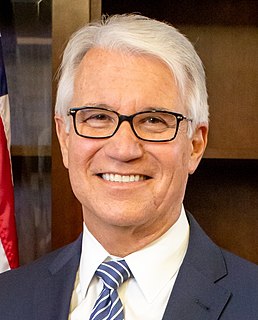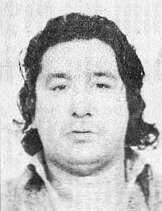A Quote by Eliot Spitzer
Our criminal justice system is fallible. We know it, even though we don't like to admit it. It is fallible despite the best efforts of most within it to do justice. And this fallibility is, at the end of the day, the most compelling, persuasive, and winning argument against a death penalty.
Related Quotes
Given my experience, I believe there are three compelling reasons why the death penalty should be replaced. (1) The criminal justice system makes mistakes and the possibility of executing innocent people is both inherently wrong and morally reprehensible; (2) My personal experience and crime data show the death penalty does not reduce crime; and (3) The death penalty wastes precious resources that could be best used to fight crime and solve thousands of unsolved homicides languishing in filing cabinets in understaffed police departments across the state.
Despite the courts efforts to fashion a death penalty scheme that is just, fair and reliable, the system is not working. Innocent people are being sentenced to death......It is no answer to say that we are doing the best that we can. If this is the best our state can do, we have no business sending people to their deaths.
Our current criminal justice system has no provision for restorative justice, in which an offender confronts the damage they have done and tries to make it right for the people they have harmed. [...] Instead, our system of "corrections" is about arm's-length revenge and retribution, all day and all night.
In the field of education, educators know that they leave a lasting impact on their students for better or for worse. Trust is established or diminished in the classroom and very good educators understand that they are fallible. Despite their best efforts, they will not always do the best for each student.
I'm not a fan of the death penalty. At some level I think killing is wrong, but I don't have sympathy for most of the people sentenced - I'm not a passionate anti-death penalty person. In truth, given all the other problems of the justice system, the numbers are so small, I think there are bigger fish to fry. Ironically, in terms of mental health and care, death row is probably the best prison situation to be in. There's a little more public eye on that, to ensure at least minimal levels of official treatment are actually given to death row prisoners.
Unfortunately for the good sense of mankind, the fact of their fallibility is far from carrying the weight in their practical judgement, which is always allowed to it in theory; for while every one well knows himself to be fallible, few think it necessary to take any precautions against their own fallibility.
Ajamu Baraka is a human rights advocate and an international human rights advocate, who's been defending racial justice, economic justice, worker justice, indigenous justice, and justice for black and brown people all over the world, and in the United States has been helping to lead the charge against the death penalty here, and is an extremely eloquent and empowering person. And one of the great things about running with him is that we speak to all of America.
I think we've misinterpreted some of the scriptures to justify the death penalty. So whereas a lot of folks in America feel like we can do far better justice? - ?it's more expensive to do the death penalty than the alternatives? - ?there's so many reasons that people come to the conclusion to abolish the death penalty.
The education justice movement and the prison justice movement have been operating separately in many places as though they're in silos. But the reality is we're not going to provide meaningful education opportunities to poor kids, kids of color, until and unless we recognize that we're wasting trillions of dollars on a failed criminal justice system.
The death penalty issue is obviously a divisive one. But whether one is for or against, you can not deny the basic illogic - if we know the system is flawed, if we know there are innocent people on Death Row, then until the system is reformed, should we not abandon the death penalty to protect those who are innocent?



































